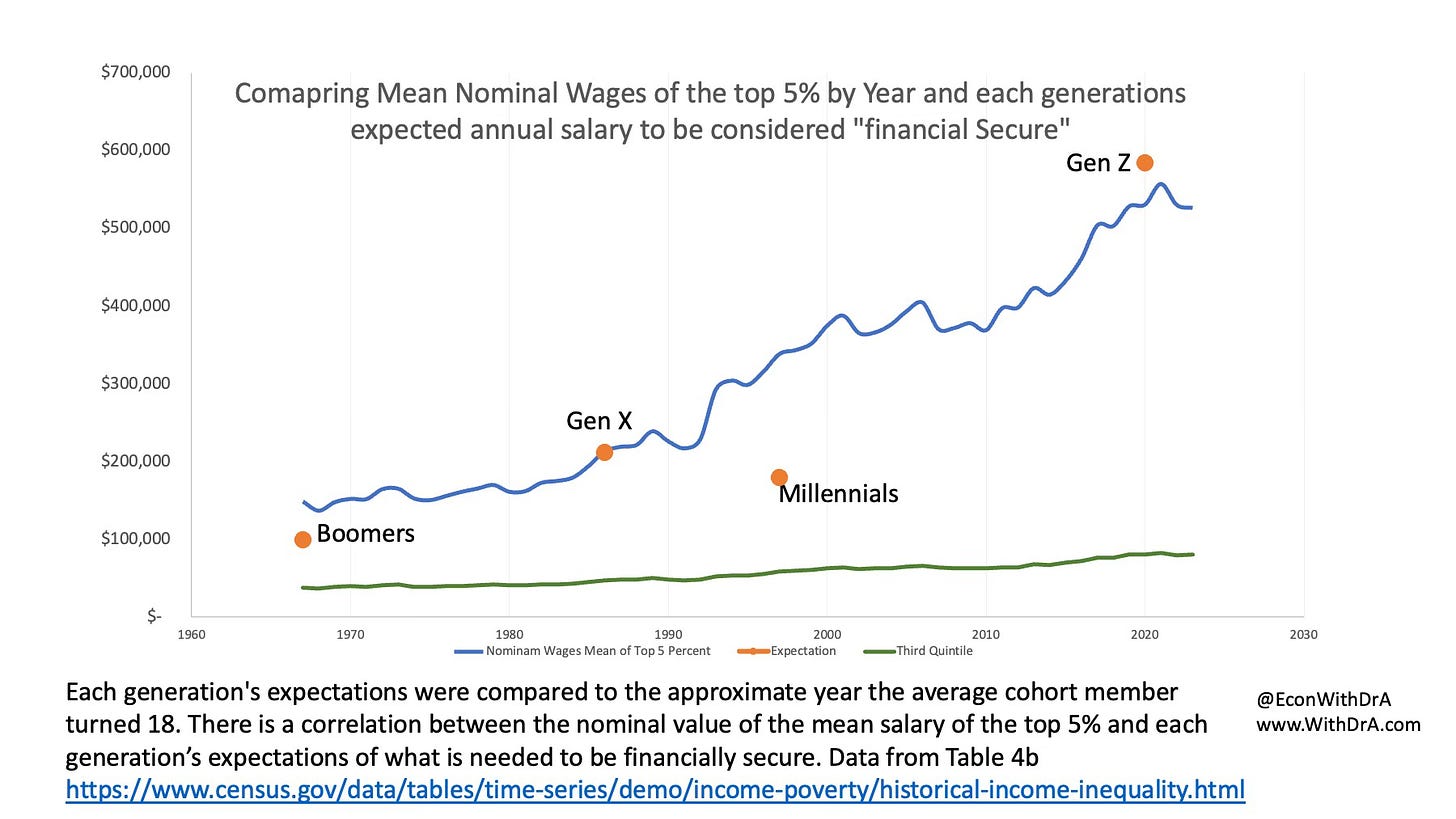The Psychology Behind Generation Z's "Unrealistic" Goals
Expectations of Financial Success are Determined at 18
This week, I had an unexpected viral moment. What started as a casual video post on Instagram and TikTok, followed by a spontaneous share on LinkedIn, sparked a fascinating conversation about generational income expectations. The response revealed something profound about how we define financial success.
The Video That Started It All: Are Gen Z's Expectations Unrealistic?
A recent survey asked people across generations what salary they needed to feel financially secure. The results were eye-opening:
- Baby Boomers: $99,000
- Generation X: $212,000
- Millennials: $180,000
- Generation Z: $587,000
That last number caught everyone's attention. Like many others, my initial reaction was that Gen Z seemed disconnected from reality. But as an economist, I knew there had to be more to the story. I was particularly concerned about the immense pressure this generation places on themselves to achieve what appears to be an impossible standard of financial success.
The Data Tells a Different Story
Intrigued by these responses, I dove into Census data, specifically looking at the average income of the top 5% earners over time. What I discovered was remarkable: there's a strong correlation between how we define financial success and the income of the top 5% earners during the year we turn 18.
This finding fundamentally changes the conversation. Gen Z isn't being unrealistic – they're simply responding to the economic environment they've observed during their formative years.
The Widening Gap: A Growing Concern
Further analysis revealed an even more troubling trend. When comparing the mean wage of the third quintile (middle-class earnings) with the top 5%, we see:
Middle-class wages are increasing
Top 5% of earnings are rising substantially
The gap between expectations and reality is widening with each generation
Baby Boomers, Gen X, and Millennials’ expectations of success were relatively close to average earnings. But for Gen Z, this gap has become unattainable and wide.
Why This Matters
This growing disparity creates a significant psychological and economic challenge. How do we support a generation that feels perpetually behind, not because they're underachieving, but because their benchmark for success has been set so high?
This isn't just about individual satisfaction. Economic systems, particularly capitalism, thrive on hope and the belief in achievable progress. When a significant portion of the population feels that success is unattainable, it can lead to broader social and economic instability – similar to what we witnessed during the Arab Spring.
Moving Forward
The solution isn't to dismiss Gen Z's expectations as unrealistic but to understand their origins and work toward creating more achievable definitions of financial success. We need to:
Foster conversations about realistic financial goals
Highlight diverse paths to financial security
Redefine success beyond just income metrics
After all, sustainable economic growth depends on having attainable goals for all generations.
How do you define financial success?
Dr. A




Amazing article. It reminded me of this one that shows workers are earning even less of the profits that their labor generates. It shows how some people feel squeezed in the economy. Higher prices and less profit share in a way
https://www.marketplace.org/2024/04/12/workers-labor-share-of-income/